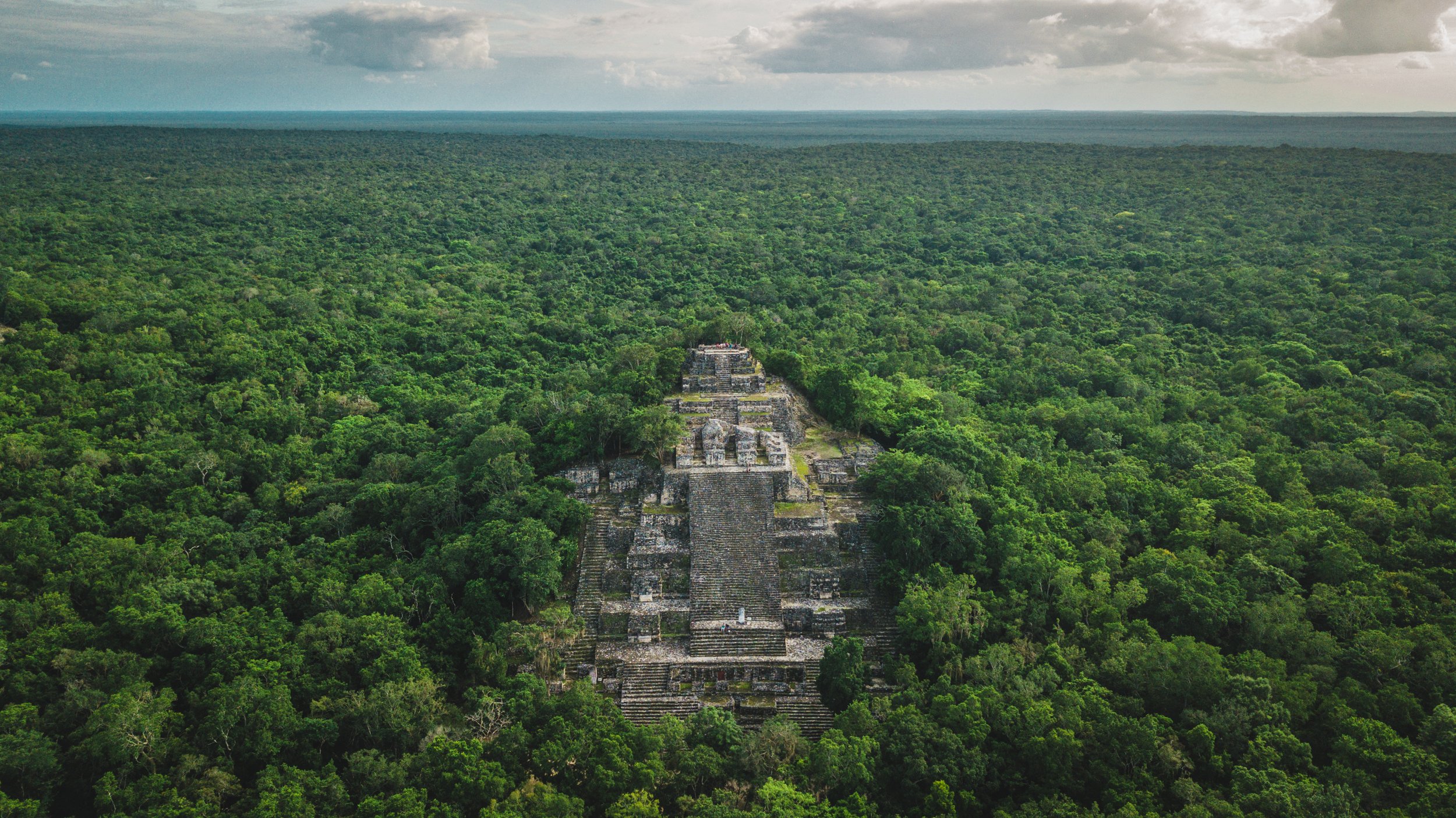Komodo National Park, Indonesia
Established in 1980 in order to protect the largest lizard on the planet, and nestled in the heart of Indonesia’s archipelago, lie the volcanic islands of Komodo National Park (KNP). Rolling green hills, dry savannas, and white and pink sand beaches make up the park’s three large islands (Komodo, Padar, and Rinca) and a legion of other smaller islands, surrounded by clear blue water.
Mouling National Park, Arunachal Pradesh, India
Mouling National Park was established in 1982 with the objective of creating a favorable habitat for plants and animals. It is located on the right bank of the river Siang and is a reserved house for diverse flora and fauna. The vegetation of the area varies according to the altitude. The upper reaches are home to temperate alpine and coniferous forests, while tropical evergreen forests cover the lower area. Ornamental plants like foxtails and orchids are abundant in this area.
Ngorongoro World Heritage Site, Tanzania
The Ngorongoro Conservation Area (8,292 km2) in northern Tanzania represents one of the world’s greatest and most important reservoirs of large mammal biodiversity, and also contains one of the most important paleoanthropological sites in the world.
Derawan Archipelago, Indonesia
Stretching over 160 kilometers along the coast of East Kalimantan Province, the Derawan Archipelago is among the most biologically rich and intact marine ecosystems in all of Indonesia. Maratua Island, one of Global Conservation’s focus areas, not only faces illegal fishing but also annual plastic islands washing onto its shores from the Philippines, Malaysia, and as far away as China.
Sierra Nevada de Santa Marta National Park, Colombia
High above the Caribbean coast of Colombia, where the land rises dramatically from the sea to nearly 5,700 meters, lies the Sierra Nevada de Santa Marta, a mountain range unparalleled in its ecological richness. This is the highest coastal range in the world, a sanctuary where glaciers gleam atop jagged peaks. This mountain range is more than just a hotspot for biodiversity; it is a spiritual heartland, a place the Kogui people call the "Heart of the World."
Racha National Park, Georgia
In the northwestern most stretches of the country of Georgia lies a sparsely populated region called Racha-Lechkhumi. There, Georgia has recently created a new national park, part of a broader initiative to expand Georgia's protected natural areas by 100,000 hectares. This protected area aims to safeguard local biodiversity, promote tourism, and create new jobs in the region.
Bardiya-Banke National Parks, Nepal
In the heart of Nepal’s Terai, where golden grasslands meet shadowed forests, lie the wild sanctuaries of Bardiya and Banke National Parks. Here, the roar of the royal Bengal tiger echoes through the trees, and the mighty one-horned rhino treads ancient paths. These parks, spanning over 1,500 square kilometers, are lifelines for endangered species and vital corridors in the Western Terai Complex.
Calakmul Biosphere Reserve, Mexico
In the depths of the Yucatán Peninsula lies Calakmul Biosphere Reserve, a place where the wild heart of the Selva Maya pulses with life and history. This expansive park shelters ancient Maya ruins hidden beneath towering trees, and within its borders, jaguars roam freely, a rare glimpse into a world where nature and culture are inextricably linked.
As part of the Maya Biosphere Reserve, Calakmul is not just a sanctuary for biodiversity but a living narrative of resilience and balance. Here, conservation efforts meet the challenge of preserving one of Central America’s most vital ecosystems while supporting the communities that call this region home.
Cat Tien National Park, Vietnam
With its sprawling forests and meandering rivers, Cat Tien National Park, Vietnam is a natural wonderland that beckons both adventurers and conservationists alike. Among its inhabitants are iconic species facing the threat of extinction. The Asian elephant, a symbol of strength and wisdom, roams these ancient forests, its presence a testament to the rich biodiversity of this region. However, this fragile paradise faces unprecedented threats from human activities and environmental degradation.
Mirador National Park, Guatemala
This is the Heart of the Maya Biosphere and a UNESCO World Heritage site. Mirador National Park, a proposed 500,000-hectare protected area, contains the largest intact primary forest and wildlife habitat in Central America with over 40 major ancient Maya cities and interconnected causeways.
Leuser Ecosystem, Sumatra, Indonesia
There's just one place left on earth where tigers, elephants, orangutans, and rhinos live together in the wild: the Leuser Ecosystem World Heritage Site on the Indonesian island of Sumatra.
Murchison Falls National Park, Uganda
Murchison Falls National Park is best known for the most powerful waterfall in the world, which roars with such intensity that the ground trembles around it. But with over 70 mammal and 450 bird species, it is also a critical area for African biodiversity.
Thap Lan World Heritage Site, Thailand
Thap Lan is Thailand’s second largest park and one of the last intact habitats for a suite of threatened and endangered species, including tigers, elephants, clouded leopards, Malayan sun bears and hornbills.
Jardines de la Reina National Park, Cuba
Although 60% of the world's coral reefs are seriously endangered, there are still bright spots for ocean conservation - areas where reefs are thriving. Conserving these intact reefs is becoming more important than ever. One such place is Jardines de la Reina National Park, in Cuba.
Cardamom National Park, Cambodia
In the uneasy peace that followed the Cambodian Civil War, the Cardamom Mountains suffered rampant logging, poaching, and slash-and-burn agriculture as people struggled to find their way in this post-conflict era.
DaMaI Rainforest Complex, Sabah, Malaysia
In the Heart of Borneo, there's a place whose uncharted rainforests are so secluded that it has never been permanently inhabited by humans. It’s as though it exists on a separate planet; some call it Sabah’s “Lost World”.
Mana Pools World Heritage Site, Zimbabwe
The 220,000-hectare Mana Pools National Park, a UNESCO World Heritage Site, lies in the Lower Zambezi Valley of Zimbabwe, part of a vast unfenced wilderness of over a million hectares where wildlife roams free.
Sierra Del Divisor National Park, Peru
The Amazon is one of the world’s greatest natural treasures: a vast expanse of rainforest stretching across 5.5 million sq. km, teeming with unparalleled biodiversity. One in every ten living species known to man lives here, including 40,000 plant species, 3000 fishes, 1300 birds, and more than 400 mammals.
Borjomi-Kharagauli National Park, Georgia
These mountains are one of the world’s biodiversity hotspots: the richest and most threatened reservoirs of life on Earth. This park helps protect many of Georgia’s endemic plants, and a number of imperiled animal species. In the park’s core wilderness area, virgin forests host many of the park’s bear, lynx, wolf, red deer and chamois.
Palau Northern Reefs, Micronesia
Palau's coral reefs are considered one of the seven Underwater Wonders of the World. They contain a menagerie of megafauna, from giant clams and manta rays to sea turtles, dugongs and fierce saltwater crocodiles that swim among hundreds of coral and sponge species.




















